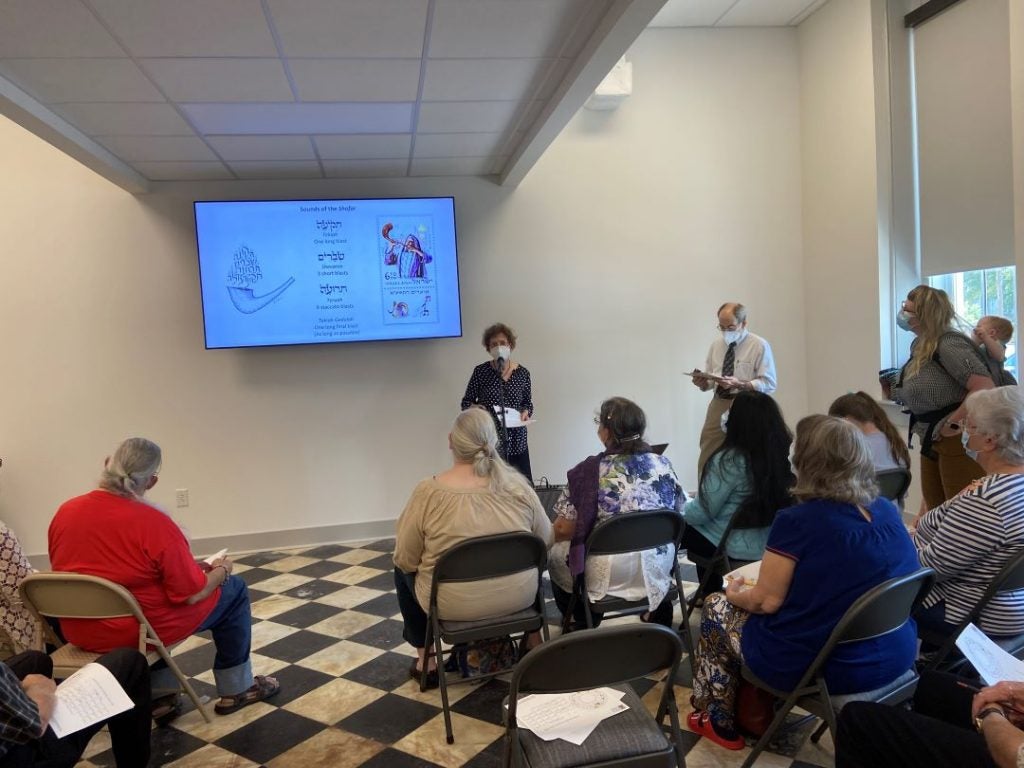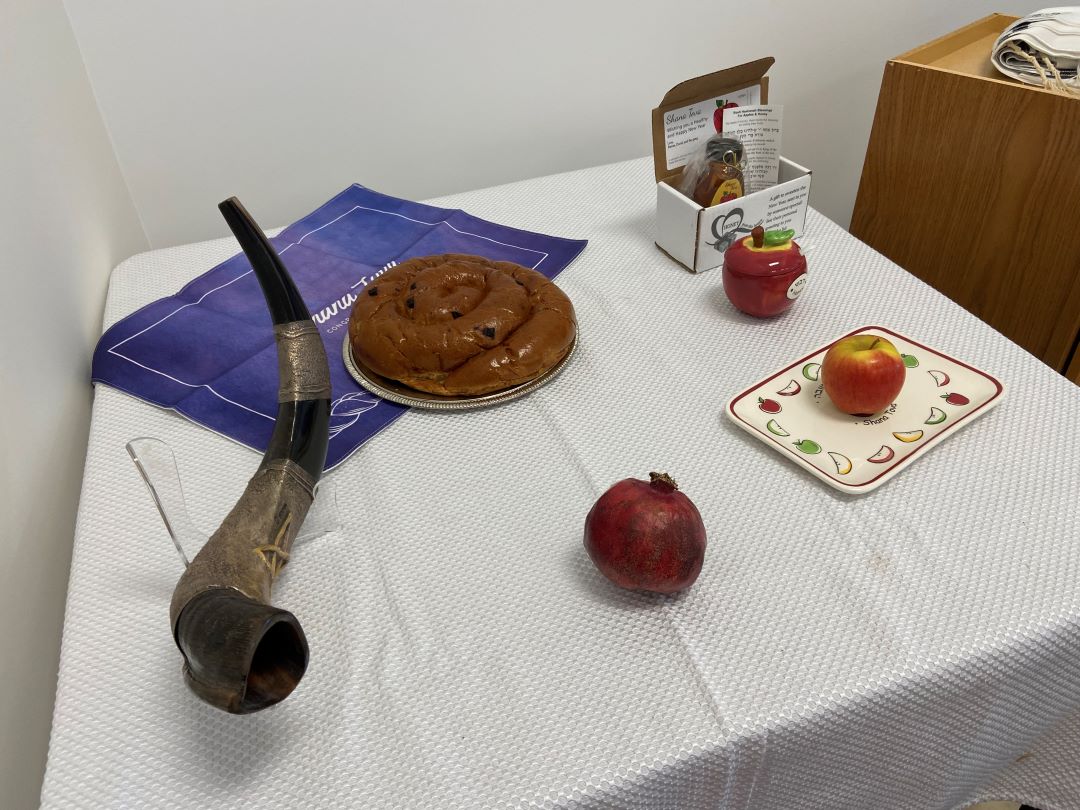The Augusta Jewish Museum is still a work in progress, but it’s opening its doors to the public for educational programs.
On Sept. 12, Jackie and Michael Cohen discussed four Jewish fall holidays, which began with Rosh Hashanah Sept. 6. About 40 people attended the class.
MORE: Augusta Jewish Museum Readying For Summer Opening
Before they gave the primer on the holidays, the Cohens had to explain a little more about Jewish traditions, starting with the basics on the Jewish calendar, which is based on a lunar cycle of 28 days. A Jewish leap year includes 13 months rather than 12 and happens seven times in a 19-year cycle.
Rosh Hashanah marks a new year.
The shofar plays an important role in the celebration of the new year, said Jackie Cohen, who showed a video of her son demonstrating the proper blasts on the instrument.
[adrotate banner=”54″]
An initial long sound called a tekiah brings everyone to attention. They are followed by the shevarim, which are three short sounds. The truah involves nine staccato blasts, she said. Then, the tekiah gedolah finishes the set. The final blast should be as long as possible.
The joyous time of the new year transitions into a more solemn observance of Yom Kippur, which will be Sept. 15 and 16.
All the Jewish holidays are celebrated beginning at sundown, she said.
Yom Kippur includes a 25-hour fast, but only those who are physically healthy enough to fast should do so.

“We have to ask forgiveness from our neighbors and friends before we can ask forgiveness from God,” Michael Cohen said.
It’s also a time of remembrance, remembering those loved ones who’ve passed away and reading their names.
The next holiday is Sukkot, which is Sept. 20-27. It’s also referred to as Tabernacles.
During this time, Jewish people build temporary dwellings called sukkah. It’s often topped with different types of branches of myrtle, citron, palm branch and willow.
[adrotate banner=”13″]
The holiday is a reminder of how the Israelites lived in temporary dwellings after coming out of the land of Egypt.
The final holiday they discussed is a Rabbinic holiday from the 10th century devoted to the love of the Torah – Simchat Torah.
MORE: Augusta Jewish Museum Marks Completion of First Phase
Educational programs will be provided at the Augusta Jewish Museum on the second Sunday of each month.
Jack Weinstein, president of the Augusta Jewish Museum, said work is still underway on the interior of the building which was formerly the court of the ordinary, and funds are still being raised.
To learn more about the Augusta Jewish Museum, visit augustajewishmuseum.org.
Charmain Z. Brackett is the Features Editor for The Augusta Press. Reach her at charmain@theaugustapress.com.
[adrotate banner=”51″]












